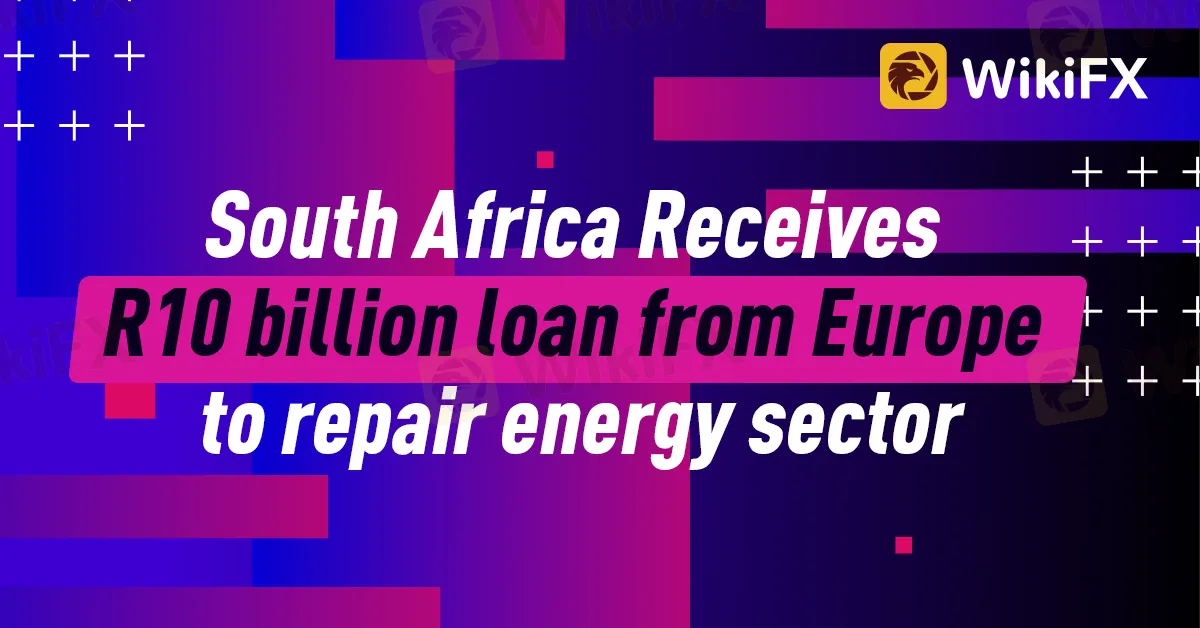简体中文
繁體中文
English
Pусский
日本語
ภาษาไทย
Tiếng Việt
Bahasa Indonesia
Español
हिन्दी
Filippiiniläinen
Français
Deutsch
Português
Türkçe
한국어
العربية
South Africa Receives R10 billion loan from Europe to repair energy sector
Abstract:The second quarter of the year was one of economic decline for South Africa as the country was experiencing a number of economic issues however the effect of these issues was exasperated by the constant electricity cuts which the country was and still is subject to. As we are now in summer energy requirements are no longer as intensive but thanks to the recent visit of President Ramaphosa the country has been able to secure R10 billion rands in funding to aid the country to restore its energy facilities. What does this mean for the RAND and how will this reflect on the USDZAR?

The second quarter of the year was one of economic decline for South Africa as the country was experiencing a number of economic issues however the effect of these issues was exasperated by the constant electricity cuts which the country was and still is subject to. As we are now in summer energy requirements are no longer as intensive but thanks to the recent visit of President Ramaphosa the country has been able to secure R10 billion rands in funding to aid the country to restore its energy facilities. What does this mean for the RAND and how will this reflect on the USDZAR?
If you look at the USDZAR over the yeah you would see that the ZAR has been steadily losing value as the economy has been struggling. One of the leading causes of this economic decline is electricity cuts. There are a bunch of economy-dependent, energy-intensive industries which slowed down production due to the cuts hence the slowdown in economic performance
At the COP27 conference in Sharm Egypt, South Africa was able to secure a €600 million loan from France and Germany. These funds are to be used to make the transition from coal energy to Wind and Solar power much easier and more effective.
This is good news as the country has been experiencing an energy crisis which was at unprecedented levels. There are some who experience daily power cuts till today and so the fresh investment in a new energy sector is welcomed. It also means that new jobs are going to be created to build and maintain these plants meaning a stronger economy
What doe this mean for the ZAR?
If you are looking to trade the ZAR then it is best you get a broker with the smallest spreads as brokers always use the fact that the ZAR is an exotic currency to crank up the spreads. But there are brokers out there with reasonable spreads, you only have to look using the WikiFx app. This gives you a live feed of the spreads that brokers offer for specific pairs. You will be able to compare brokers and sign up for a new account without leaving the app. So if you need to find a good broker download the WiKiFx app today.
This is good news for the ZAR as losing value for almost six months straight. We can even see that the USDZAR pair is reacting well to the news as we recently broke below the swing low of the R17.90 level and chances are we will not be trading back at that level. The new loan is not the only good news giving the ZAR its strength. The recent Budget report by the finance minister added confidence to the market as well as the recent strikes on the exporting business Transnet.

Disclaimer:
The views in this article only represent the author's personal views, and do not constitute investment advice on this platform. This platform does not guarantee the accuracy, completeness and timeliness of the information in the article, and will not be liable for any loss caused by the use of or reliance on the information in the article.
Read more

The Hidden Checklist: Five Unconventional Steps to Vet Your Broker
Forex broker scams continue to evolve, employing new tactics to appear credible and mislead unsuspecting traders. Identifying these fraudulent schemes requires vigilance and strategies beyond the usual advice. Here are five effective methods to help traders assess the legitimacy of a forex broker and avoid potential pitfalls.

Doo Financial Obtains Licenses in BVI and Cayman Islands
Doo Financial, a subsidiary of Singapore-based Doo Group, has expanded its regulatory footprint by securing new offshore licenses from the British Virgin Islands Financial Services Commission (BVI FSC) and the Cayman Islands Monetary Authority (CIMA).

CFI’s New Initiative Aims to Promote Transparency in Trading
A new programme has been launched by CFI to address the growing need for transparency and awareness in online trading. Named “Trading Transparency+: Empowering Awareness and Clarity in Trading,” the initiative seeks to combat misinformation and equip individuals with resources to evaluate whether trading aligns with their financial goals and circumstances.

Malaysian-Thai Fraud Syndicate Dismantled, Millions in Losses Reported
The Royal Malaysia Police (PDRM) has received 26 reports concerning the Nicshare and CommonApps investment schemes, both linked to a major fraudulent syndicate led by a Malaysian citizen. The syndicate’s activities came to light following the arrest of its leader by Thai authorities on 16 December.
WikiFX Broker
Latest News
ASIC Sues Binance Australia Derivatives for Misclassifying Retail Clients
WikiFX Review: Is FxPro Reliable?
Malaysian-Thai Fraud Syndicate Dismantled, Millions in Losses Reported
Trading frauds topped the list of scams in India- Report Reveals
YAMARKETS' Jingle Bells Christmas Offer!
AIMS Broker Review
The Hidden Checklist: Five Unconventional Steps to Vet Your Broker
WikiFX Review: Something You Need to Know About Markets4you
Revolut Leads UK Neobanks in the Digital Banking Revolution
Fusion Markets: Safe Choice or Scam to Avoid?
Currency Calculator


